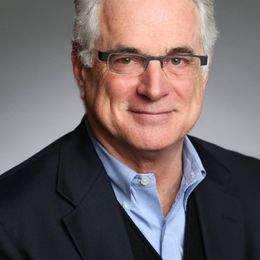Why Working Longer Is Good for Your Health
Here's how recent studies upend conventional wisdom
Retirement didn’t sit with Lee Humphrey when she tried it about a decade ago, at 62. About a year after leaving her St. Paul, Minn. job at the Department of Employment and Economic Development, she unretired and began creating indexes for books after taking an online course on this. She wanted to work longer. “As pleasant as that first year of retirement was — reading, gardening, walking, some volunteering but generally relaxing — I came to realize that, for me, it was very important to add something in my life that was more mentally taxing,” says Humphrey. “I found myself feeling a bit sluggish, mostly mentally sluggish, and that was way out of keeping with my entire life.”

Working Longer: Good for Your Health
Humphrey’s experience highlights a potentially revolutionary shift in our understanding of the dynamic relationship between health, work and aging. And it's something worth noting as Labor Day approaches: A small, but growing coterie of scholars around the world is reaching the conclusion that, in many cases, work is good for our health as we age.
In Work Longer, Live Healthier, Gabriel Sahlgren, director of research at the Centre for the Study of Market Reform of Education in London, makes the case that jobs and health feed off and reinforce each other. Healthier, older people can work longer and working longer maintains their health. “Continuing some form of paid work in old age is one way to ensure a healthier population,” Sahlgren wrote.
Contrary to popular perception, despite the accumulated wear and tear from the passage of time, most older people in their 60s are healthy. Data from the U.S. and other industrial nations increasingly shows that most people around age 65 are healthy enough to work (if they can find employers who’ll let them or they work for themselves). What's more, studies have found that the mental demands of a job can be a force for staving off cognitive decline, an insight summarized by the catchphrase “use it or lose it.” There’s growing appreciation that, from the factory floor to the office cubicle, work is an environment for promoting conversation and connection.
The Conventional Wisdom Is Wrong
This recent, growing body of knowledge runs counter to deeply ingrained assumptions about aging.
Conventional wisdom holds that older workers have a mounting litany of ailments, disabilities and mental decline, requiring them to call it quits. And, the thinking goes, those remaining on the job become less productive, less motivated and less willing to learn. Sadly, these archaic perspectives continue appearing in much economic forecasting and many demographic white papers as well as popular commentary.
Let’s start with the evidence about healthier longevity. Health Capacity to Work at Older Ages: Evidence from the U.S. tackles the question of whether older Americans are healthy enough to extend their work lives. It was done by Courtney Coile of Wellesley College, Kevin Milligan of the University of British Columbia and David Wise of National Bureau of Economic Research.
Among other things, they wanted to find out: How much longer could men work today if they worked as long as men with the same mortality rate in 1977? The answer: an additional 4.2 years between ages 55 and 69.
Economist Courtney Coile summarized this kind of research during an Age Boom Academy session at Columbia University I attended in June. “We’re getting healthier faster than we are increasing our labor force participation rate,” said Coile.
Why the Skeptics Are Wrong
But, the skeptics say, won’t the economy’s dynamism falter if more older workers remain on payroll? Here’s the truth: Productivity doesn’t decline with age. Like a fine wine, it’s far more likely that productivity improves with age (with one important caveat I’ll get to shortly).
Certainly, productivity improvement as we age is a reasonable conclusion to draw from research by economist Axel Börsch-Supan and colleagues at the Munich Center for the Economics of Aging. Börsch-Supan and Matthias Weiss examined productivity data from a Mercedes-Benz truck assembly plant in Germany and concluded that productivity progressed there all the way up to retirement, at age 65.
“Even in a work environment requiring substantial physical strength,” they wrote, any decline in physical ability “is compensated by characteristics that appear to increase with age and are hard to measure directly, such as experience and the ability to operate well in a team when tense situations occur, typically when things go wrong and there is little time to fix them.”
Similar Results at Insurer and Auto Plant
Börsch-Supan and colleagues conducted a similar study at a major insurance company in Germany, where employees work in cubicles, not at an assembly line. Once again, they discovered, older workers performed better than their younger peers.
“Experience accumulates,” Börsch-Supan told me at the 2016 Retirement Research Consortium conference in Washington, D.C. in early August. “The general results were very similar to the auto industry.”
The implications of studies like these go far beyond breaking down stereotypes. If only policymakers would put more emphasis on labor market reforms that would boost the labor force participation rate of all workers.
One Caveat About Productivity and Age
Now to my caveat about productivity and age: The positive relationship between health, work and aging depends greatly on the quality of the job. Productivity among older workers declines, studies have shown, for those with boring, repetitious tasks done year after year. The health benefits of employment in the second half of life are most noticeable when employees enjoy a measure of autonomy and variety in their jobs.
“The discussion should shift to what we really should worry about: the quality of jobs,” says Börsch-Supan. I couldn't agree more.


